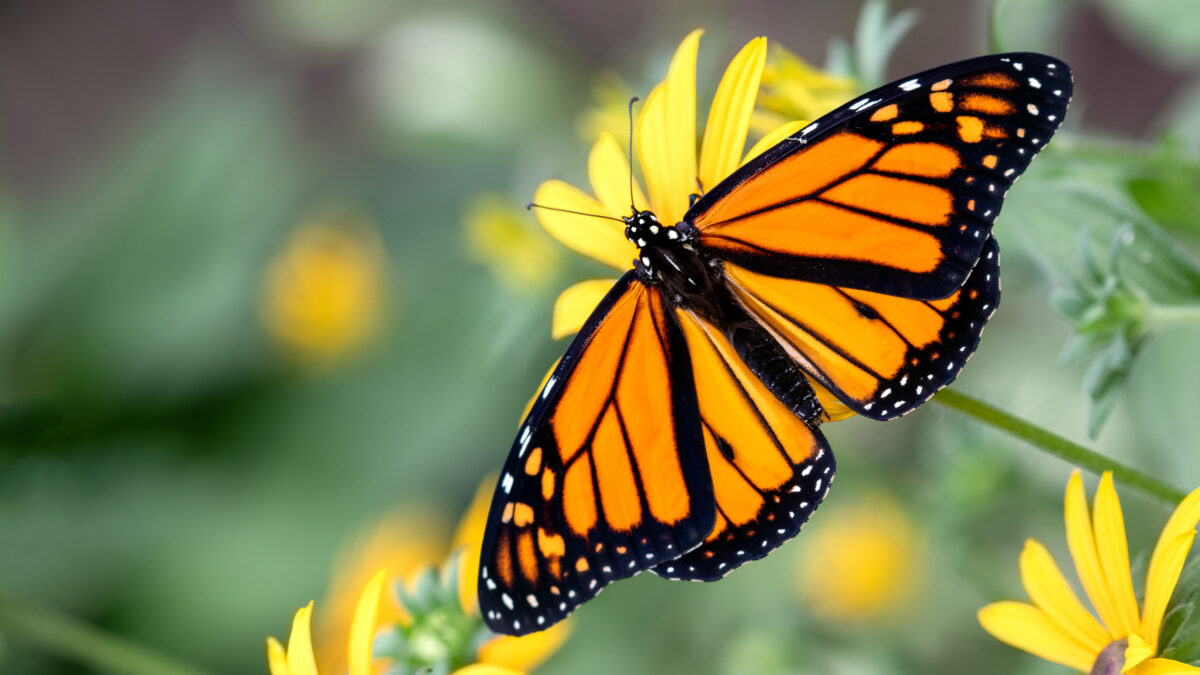Pollinators are Vital for the Environment and Growing Crops
Cyndie Shearing
Director, Communications

photo credit: Getty
Cyndie Shearing
Director, Communications
National Pollinator Week is June 17-23
Ask a farmer or rancher about pollinators and you’re sure to hear that they are vital for the environment and growing crops used for both human consumption and feeding livestock. These essential creatures include bees, butterflies, moths, bats, beetles and hummingbirds.
Below are pollinator-related activities and initiatives from around the country that are worthy of celebration during National Pollinator Week (June 17-23) and throughout the year.
In Arizona, the Arizona Monarch Collaborative brings attention to the monarch in the state and the various ways individuals, municipalities and industries can help enhance and protect monarch habitat. Arizona Farm Bureau is part of the collaborative, which is made up of representatives of organizations and state and federal agencies.
In Arkansas, several farmers and ranchers have planted fields for pollinators and utilized USDA funding to create pollinator habitats. At Barnhill Orchards, their monarch waystations are full of
propagated butterfly weed. An Arkansas Farm Bureau video highlights their support of the Monarch butterfly population and the state pollinator program.
In California, the California Farm Bureau and its partners have received $5 million from the California Department of Food and Agriculture to implement climate-smart farming practices in citrus groves in 11 counties. The project will focus on helping farmers implement practices that create safe pollinator habitat.
In Idaho, Randy and Karen Reed fulfilled a lifelong dream when they created a butterfly ecosystem in an empty greenhouse. Listen to “The Butterfly Haven,” a podcast episode from Idaho Farm Bureau, to learn about the evolution of a caterpillar to a butterfly, the important role pollinators play in agriculture and more.
In Illinois, the Illinois Farm Bureau has developed several resources related to pollinator conservation for farmers and other landowners, including a Pollinator Habitat Guide for Agricultural Landscapes and Mowing for Monarchs guidance. Also in Illinois, educational events at Chicago’s Lincoln Park Zoo are aimed at raising awareness of pollinators and how necessary they are to our food supply.
In Iowa, the Iowa Monarch Conservation Consortium (Iowa Farm Bureau is a member) is working toward a common goal of enhancing the monarch’s reproduction across the state by supporting the propagation of breeding habitat through research, education and direct action. Also in Iowa, Farm Bureau member Ron Rynders, a beekeeper, spearheaded an effort to increase pollinator habitat by bringing back native flowers to the region.
In North Carolina, farmer Kamal Bell points to honeybees as the perfect example of the aspects of farming he’s most committed to: exposing youth to agriculture and incorporating environmental sustainability practices. He’s found that honeybees can provide a great introduction to bringing youth [to the farm] and educating them about farming.
In Virginia, the Virginia Farm Bureau celebrates and supports pollinators by sharing success stories such as that of Virginia Tech, which recently became Bee Campus USA-certified for ongoing efforts to conserve native pollinators. VAFB also shares useful information about native plants and how to establish a pollinator habitat at your home. And a new video features the story of retirees who are raising honeybees.